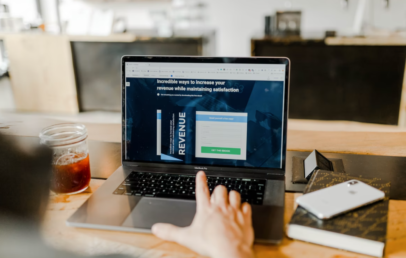The prices keep skyrocketing in the United States, creating a big press on the American consumer’s wallet.
The Federal Reserve conducts a meeting eight times every year to talk about monetary policies. In the previous week, the Federal Reserve has come into an agreement to keep the inflation rate where it currently is until their next gathering.
With the market so high and interest rates extremely low, inflation is surely creeping out, so all eyes are on the Federal Chairman Jerome Powell and the Federal Open Market Committee (FOMC) to keep up with their action plan every meeting.
The Federal holds the power to control inflation, and in case the inflation rate rises, they can control it by increasing interest rates. However, a high-interest rate doesn’t sound good for stock market investors.
Interestingly, the Federal Open Market Committee (FOMC) keeps the inflation rate at 2% every year. The rate was measured and decided by the yearly change in the price index for personal consumption. This was a constant mandate in order for price stability and maximum employment. However, in their most recent meeting, they have acknowledged that inflation is here and is going to creep up to 3.4%.
The Federal has moved its timeline for rate hikes along with the rise of inflation and moved it a year earlier than what was previously planned. The Fed has claimed that the high prices would come as early as 2003, instead of what they initially announced in 2024. Yet, among the 12 officials in the Fed meeting believed that the rate increase would take place immediately in 2022.
As we all know, inflation is measured by the Consumer Price Index (CPI) , which tracks the price changes in all sorts of categories of consumer products and then simplifies it into just one index. For instance, housing, food, transportation, medical care, recreation, communication, education, and other goods and services.
The American CPI has dramatically risen in the previous 12 months— the steepest increase in consumer prices since July 2008.
Berkshire Hathaway led by Warren Buffett, owns and operates many businesses all throughout America under their name. “Take home building, I mean, you know the cost of, we got nine builders in addition to our manufactured housing and then operation which is the largest in the country. So we really do a lot of housing.
The costs are just up, up, up. The steel cost, just every day they’re going up but there’s more inflation going on than people would have anticipated,” Buffet stated.
They are raising their prices, the people are raising their prices to them, and it’s getting accepted by the consumers.
Michael Burry, a well-respected investor, also made a statement warning people and investors about the greatest stock market bubble that’s just around the corner. Even the Fed is acknowledging that inflation is going beyond the borders of what they have anticipated.
The central banks combat inflation by raising interest rates, however, this greatly affects the investors. Raising interest rates means that the new “risk-free” bonds look more tempting to investors.
As interest rises, there is a lot of money that flows to bonds and there’s less in the stock market, which is pretty opposite to what’s happening before— as interests are low, new bonds don’t provide much return so the money flows into the stock market.
Every money that is flowing into the stocks propels the market higher. With high-interest rates, the money within the stock market comes down, which investors surely don’t want.
Interest rates determine the cost of accessing borrowed money.
In a low-interest environment, money is very accessible, and so consumers have a lot of money to spend on services or products that people invest in. Moreover, enterprises can fund opportunities for growth without stressing too much on interests.
On the other hand, money is way more expensive to acquire in a high-interest environment. This means that most of the people’s income goes to mortgages, leaving less money for shopping and another unnecessary spending. Furthermore, business plans— especially the big ones— are harder to fund because of the large interest charge.
We aren’t heading to the extreme inflation rate of 14.4% like in the 1980s. However, there is a lot of evidence that a big upturn in inflation is coming.

The prices of food went up to 2.4% in the recent 12 months and dining out prices increased to 4.2%. Many restaurants are facing difficulties getting staff while they try to reopen, and this has led to a higher wage that is passed onto the customers.
Price value for used cars also rose to 10.5% in June— having the largest on-month jump record, and an insane increase of 45.2% in the past 12 months. Prices of new cars were also up by 5.3% in the last year, reaching new record levels.
Car prices are driven by massive consumer demand for transportation, on the edge of limited supply because of the shortage in computer chips necessary for building cars. Even car rental companies have sold off many of their fleet cars in order to make money during the pandemic, resulting in insufficient numbers of cars available for rent.
Although extended inflation raises a concern, these recent rises in prices will only be temporary. Inflation is skyrocketing due to the return to normal levels after having the economy fall into recession. That is what makes the year-over-year comparison seem electric, appearing as enormous increases. This is quite accurate for the price of travel.
For instance, the airfares soared to 24.6% in the last 12 months, and motel and hotel prices increased to 15.1%. However, either is still way below where they stood ahead of the pandemic in June 2019.
Economists believe that this sudden burst of inflation will eventually come to pass. Yet, if the prices would continuously exceed expectations, the central banks might be prompted to increase the rates of interest in an effort to settle down the economy. However, the Fed expects to keep low rates until 2023.
PNC Financials’ chief economist Gus Faucher has stated that while inflation numbers might have been on the headlines in the previous months, the underlying inflation is still under control. He expressed that the prices on areas like airfares, hotels, rental cars are soaring, and comparing them to less expensive prices a year earlier is a way of overstating inflation.
The current inflation burst was milder, and it might be fundamentally different because of the pandemic. The extra savings, supply shortages, and the suppressed demand account for a lot of price increases that have been showing up in the official government figures. The government and the Fed have allotted a hefty amount of money into the economy, and because of that, sustained inflation rise cannot be discounted entirely.
One thing is for sure, if inflation continues to climb higher than it’s expected to be, the Federal government would be required to strengthen the financial condition of the market by lessening the bond purchases and increasing short-term rates of interest. Hence, markets in all areas would surely become more volatile. The stock market will then be unsettled.
Right now, no one can actually make a 100% accurate prediction about the inflation market. There is substantial uncertainty to every prediction within the present environment. However, if we would go back to what happened in the 1970s, it was reasonable to think that a dollar could only be worth cents in the coming years— unless invested in assets.



